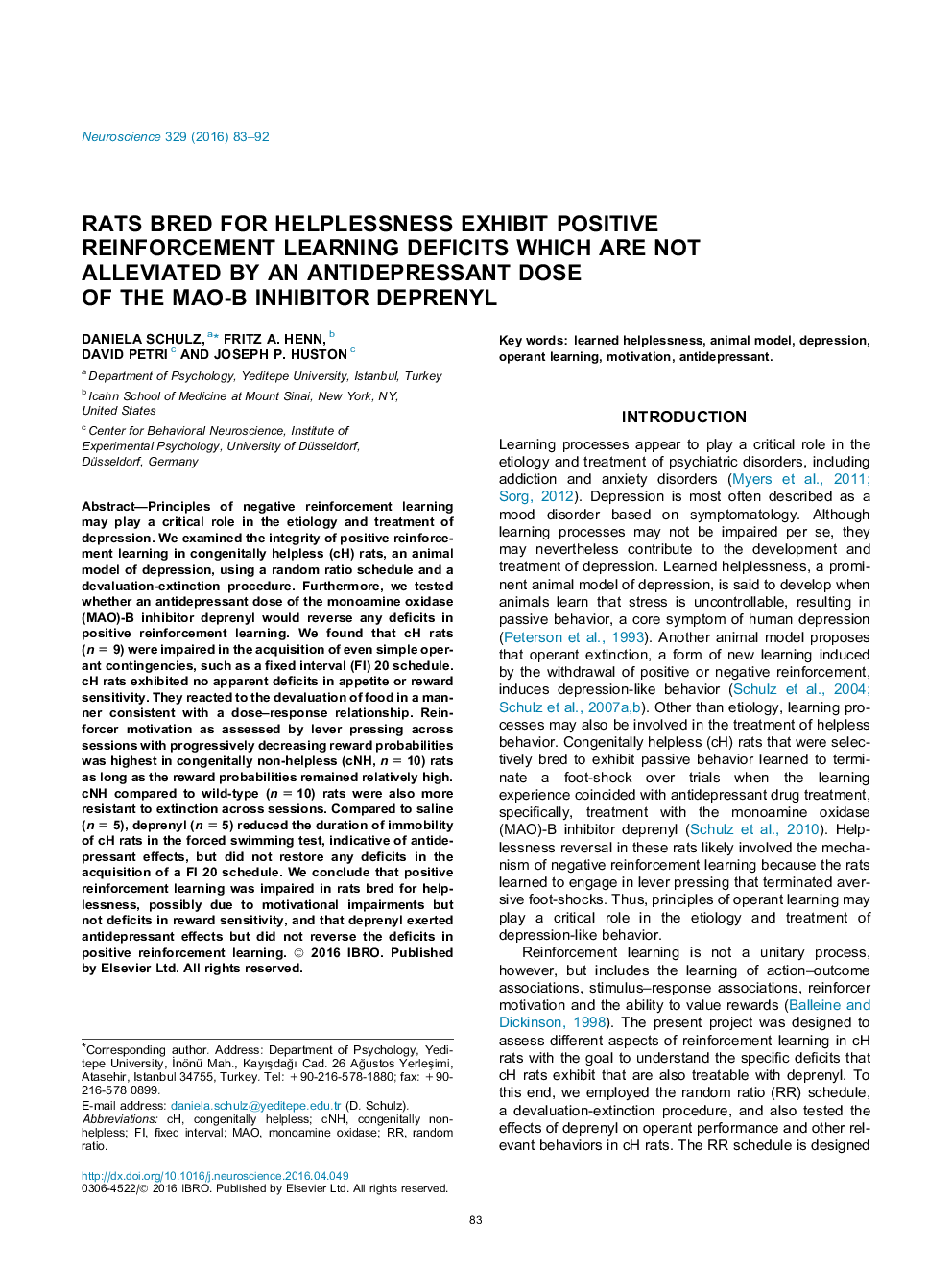| Article ID | Journal | Published Year | Pages | File Type |
|---|---|---|---|---|
| 6271013 | Neuroscience | 2016 | 10 Pages |
â¢Studied positive reinforcement learning in a congenital rat model of depression.â¢Congenitally helpless (cH) rats were impaired in acquiring operant contingencies.â¢cH rats did not exhibit deficiencies in appetite or reward sensitivity.â¢MAO-B inhibitor deprenyl reduced immobility of cH rats in the forced swim test.â¢Deprenyl did not reverse deficits of cH rats in positive reinforcement learning.
Principles of negative reinforcement learning may play a critical role in the etiology and treatment of depression. We examined the integrity of positive reinforcement learning in congenitally helpless (cH) rats, an animal model of depression, using a random ratio schedule and a devaluation-extinction procedure. Furthermore, we tested whether an antidepressant dose of the monoamine oxidase (MAO)-B inhibitor deprenyl would reverse any deficits in positive reinforcement learning. We found that cH rats (n = 9) were impaired in the acquisition of even simple operant contingencies, such as a fixed interval (FI) 20 schedule. cH rats exhibited no apparent deficits in appetite or reward sensitivity. They reacted to the devaluation of food in a manner consistent with a dose-response relationship. Reinforcer motivation as assessed by lever pressing across sessions with progressively decreasing reward probabilities was highest in congenitally non-helpless (cNH, n = 10) rats as long as the reward probabilities remained relatively high. cNH compared to wild-type (n = 10) rats were also more resistant to extinction across sessions. Compared to saline (n = 5), deprenyl (n = 5) reduced the duration of immobility of cH rats in the forced swimming test, indicative of antidepressant effects, but did not restore any deficits in the acquisition of a FI 20 schedule. We conclude that positive reinforcement learning was impaired in rats bred for helplessness, possibly due to motivational impairments but not deficits in reward sensitivity, and that deprenyl exerted antidepressant effects but did not reverse the deficits in positive reinforcement learning.
